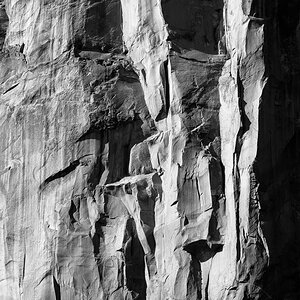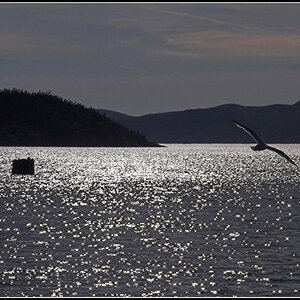Navigation
Install the app
How to install the app on iOS
Follow along with the video below to see how to install our site as a web app on your home screen.

Note: This feature currently requires accessing the site using the built-in Safari browser.
More options
You are using an out of date browser. It may not display this or other websites correctly.
You should upgrade or use an alternative browser.
You should upgrade or use an alternative browser.
Photography is Dead. Long Live Photography!
- Thread starter cgw
- Start date
- Joined
- Jun 9, 2013
- Messages
- 20,580
- Reaction score
- 12,709
- Website
- moderndinosaur.wordpress.com
- Can others edit my Photos
- Photos NOT OK to edit
Well, that was...tortured.
cgw
Been spending a lot of time on here!
OK, how?
Last edited:
Derrel
Mr. Rain Cloud
- Joined
- Jul 23, 2009
- Messages
- 48,225
- Reaction score
- 18,941
- Location
- USA
- Website
- www.pbase.com
- Can others edit my Photos
- Photos OK to edit
Well, that was...tortured.
Not quite sure what you mean by tortured....perhaps Lin is an English as a second language Taiwanese national....it seems like he might be. But yeah...this type of fluffy, off-the-cuff nonsense is annoying. I enjoy scholarly writing about the topics Lin touches on, but do not like his flippant attitude about a subject I hold dear.Specifically, there are a couple of statements in there that Lin presents as being accurate and factual, but which I think are way too broadly overstated. One tack he takes is for example, him assigning the majority of credit behind the early popularity of digital photography to geeky men who worked in IT as the driving force of a huge social revolution, and I think he's flat-out wrong about that. I think he's ignoring the huge interest in early digital photography among the rank and file of the world-and that included one hell of a lot of women! Moms, grandmothers, aunts, sisters, working women, retired women, and women in academia, the arts, and well, regular, everyday women-folk of all types. The idea that geeky hipsterish white males who worked in IT drove the first wave of digital, on-line-associated photography? Uh...that's one hell of an unsupported argument, but WTF, right? He's working on a blog, so B.S. is A-okay, fer sure,fer sure, right?
Apart from his writing, I really LIKED Lin's three portfolios-even if they are the street photography that he disparaged in his blog post.
Not five minutes before cgw posted this link to the above article, I posted here that I consider photography to be the earlier, film-based field of endeavor that many of us learned on, and I consider digital imaging to be the name of the new paradigm; I, as do many others, consider that the goal of photography is to capture a permanently-fixed-format image on some type of emulsion-coated substrate, an image that has a tangible, permanent form. I consider digital imaging to be using an electronic image capture device, in which the created pictures are made up of computer language, and an endeavor in which the image is not considered permanent or fixed in its form, but infinitely malleable,infinitely variable, and easily manipulable with a computer and software.
I think calling modern, electronic digital imaging by the name of the its predecessor,which was photography, is just not the right way to describe the new paradigm. I "get" that he's using photography to mean all types of picture-making, but I think photography and digital imaging are two, different, yet related things.
- Joined
- Jun 9, 2013
- Messages
- 20,580
- Reaction score
- 12,709
- Website
- moderndinosaur.wordpress.com
- Can others edit my Photos
- Photos NOT OK to edit
Well, that was...tortured.
Not quite sure what you mean by tortured....perhaps Lin is an English as a second language Taiwanese national....it seems like he might be. But yeah...this type of fluffy, off-the-cuff nonsense is annoying. I enjoy scholarly writing about the topics Lin touches on, but do not like his flippant attitude about a subject I hold dear.Specifically, there are a couple of statements in there that Lin presents as being accurate and factual, but which I think are way too broadly overstated. One tack he takes is for example, him assigning the majority of credit behind the early popularity of digital photography to geeky men who worked in IT as the driving force of a huge social revolution, and I think he's flat-out wrong about that. I think he's ignoring the huge interest in early digital photography among the rank and file of the world-and that included one hell of a lot of women! Moms, grandmothers, aunts, sisters, working women, retired women, and women in academia, the arts, and well, regular, everyday women-folk of all types. The idea that geeky hipsterish white males who worked in IT drove the first wave of digital, on-line-associated photography? Uh...that's one hell of an unsupported argument, but WTF, right? He's working on a blog, so B.S. is A-okay, fer sure,fer sure, right?
Apart from his writing, I really LIKED Lin's three portfolios-even if they are the street photography that he disparaged in his blog post.
Not five minutes before cgw posted this link to the above article, I posted here that I consider photography to be the earlier, film-based field of endeavor that many of us learned on, and I consider digital imaging to be the name of the new paradigm; I, as do many others, consider that the goal of photography is to capture a permanently-fixed-format image on some type of emulsion-coated substrate, an image that has a tangible, permanent form. I consider digital imaging to be using an electronic image capture device, in which the created pictures are made up of computer language, and an endeavor in which the image is not considered permanent or fixed in its form, but infinitely malleable,infinitely variable, and easily manipulable with a computer and software.
I think calling modern, electronic digital imaging by the name of the its predecessor,which was photography, is just not the right way to describe the new paradigm. I "get" that he's using photography to mean all types of picture-making, but I think photography and digital imaging are two, different, yet related things.
Yes, the entire piece seemed like a vehicle for snarky comments that he wanted to make, rather than an actual substantive overall point. The entire piece could have been a third of the length.
Derrel
Mr. Rain Cloud
- Joined
- Jul 23, 2009
- Messages
- 48,225
- Reaction score
- 18,941
- Location
- USA
- Website
- www.pbase.com
- Can others edit my Photos
- Photos OK to edit
Agreed...way too much snark from Lin.
Michel88
TPF Noob!
- Joined
- Sep 3, 2014
- Messages
- 32
- Reaction score
- 9
- Location
- Amsterdam
- Can others edit my Photos
- Photos OK to edit
[...]
Not five minutes before cgw posted this link to the above article, I posted here that I consider photography to be the earlier, film-based field of endeavor that many of us learned on, and I consider digital imaging to be the name of the new paradigm; I, as do many others, consider that the goal of photography is to capture a permanently-fixed-format image on some type of emulsion-coated substrate, an image that has a tangible, permanent form. I consider digital imaging to be using an electronic image capture device, in which the created pictures are made up of computer language, and an endeavor in which the image is not considered permanent or fixed in its form, but infinitely malleable,infinitely variable, and easily manipulable with a computer and software.
I think calling modern, electronic digital imaging by the name of the its predecessor,which was photography, is just not the right way to describe the new paradigm. I "get" that he's using photography to mean all types of picture-making, but I think photography and digital imaging are two, different, yet related things.
I agree with most of what you just said, as the article was a lot of bogus to me. If anything, people around me are starting to get more and more into photography, since it became a lot easier to do, and since DSLR's are quite affordable, especially if you pick up a model a couple years old.
What I disagree with though, is your separation of photography as it was two decades ago, and the way photography is now. For starters, the term you use does not do it justice. Photography is more than just a (digital) image. Perhaps it's because I've never really used old film, except for those throw away camera's, but my first real camera was a DSLR.
The way I see it, I can draw a comparison between cars and photography. Cars nowadays have many new features, rear view camera's, parking assistance, power steering, cruise control, automatic lightning etc. New features that makes people become better drivers. Should we start calling it different now, with these additions? Photography for me is just the same. We get new features, with the digitalization, which makes it a lot easier for people to take up the hobby, but the essence remains what it has always been: Capturing what we see, and for me it is reason to not call it something else. It has just.. evolved, like many other items as well with technology bringing us forward.
- Joined
- Jun 9, 2013
- Messages
- 20,580
- Reaction score
- 12,709
- Website
- moderndinosaur.wordpress.com
- Can others edit my Photos
- Photos NOT OK to edit
[...]
Not five minutes before cgw posted this link to the above article, I posted here that I consider photography to be the earlier, film-based field of endeavor that many of us learned on, and I consider digital imaging to be the name of the new paradigm; I, as do many others, consider that the goal of photography is to capture a permanently-fixed-format image on some type of emulsion-coated substrate, an image that has a tangible, permanent form. I consider digital imaging to be using an electronic image capture device, in which the created pictures are made up of computer language, and an endeavor in which the image is not considered permanent or fixed in its form, but infinitely malleable,infinitely variable, and easily manipulable with a computer and software.
I think calling modern, electronic digital imaging by the name of the its predecessor,which was photography, is just not the right way to describe the new paradigm. I "get" that he's using photography to mean all types of picture-making, but I think photography and digital imaging are two, different, yet related things.
I agree with most of what you just said, as the article was a lot of bogus to me. If anything, people around me are starting to get more and more into photography, since it became a lot easier to do, and since DSLR's are quite affordable, especially if you pick up a model a couple years old.
What I disagree with though, is your separation of photography as it was two decades ago, and the way photography is now. For starters, the term you use does not do it justice. Photography is more than just a (digital) image. Perhaps it's because I've never really used old film, except for those throw away camera's, but my first real camera was a DSLR.
The way I see it, I can draw a comparison between cars and photography. Cars nowadays have many new features, rear view camera's, parking assistance, power steering, cruise control, automatic lightning etc. New features that makes people become better drivers. Should we start calling it different now, with these additions? Photography for me is just the same. We get new features, with the digitalization, which makes it a lot easier for people to take up the hobby, but the essence remains what it has always been: Capturing what we see, and for me it is reason to not call it something else. It has just.. evolved, like many other items as well with technology bringing us forward.
But if you're going to draw a comparison with cars, it's more appropriate to distinguish between internal combustion engines and electric or even hybrid engines. The features of the electic cars do not distinguish them from previous generations of cars. It's the propulsion system.
The bells and whistles of the DLSR aren't what make them essentially different from film cameras. Later film cameras had plenty of auto functions. What makes them different is the medium on which you are capturing the image. Digital sensors are not film. The end product is still an image, but they get there in two very different ways.
(One way the comparison holds is that one could dispute the claim that the auto features of today's cars make people better drivers, or that the numerous features of modern DSLRs make people better photographers. But that's a different thread.)
I'm not taking either side of whether or not photography should now be called digital imaging. Just commenting on the comparison with cars.
compur
Been spending a lot of time on here!
Cars nowadays have many new features, rear view camera's, parking assistance, power steering, cruise control, automatic lightning etc. New features that makes people become better drivers.
Does a calculator that does math calculations for you make you a better mathematician?
Does a maid who cleans up after you make you a better housekeeper?
Does a musical instrument that plays songs at the touch of a button make you a better musician?
I think you have it backwards. When something is done for you it reduces your participation and your personal skill in that area withers.
Should we start calling it different now, with these additions? Photography for me is just the same. We get new features, with the digitalization, which makes it a lot easier for people to take up the hobby, but the essence remains what it has always been: Capturing what we see, and for me it is reason to not call it something else. It has just.. evolved, like many other items as well with technology bringing us forward.
I don't think that having things done for us brings us forward. It simply reduces the need for knowing how to do it ourselves which makes us more dependent on gadgets which then pushes us backward.
- Joined
- Sep 2, 2003
- Messages
- 34,503
- Reaction score
- 7,531
- Location
- In the mental ward of this forum
- Can others edit my Photos
- Photos NOT OK to edit
New features that makes people become better drivers.
Not really, no. New technology features actually take control away from drivers to make them safer drivers, which in turn reduces things like rear-end collisions or fender-benders from poor driving skills - thus reducing the amount of insurance claims.
If people routinely show they lack the skill sets and/or discipline to master something, they will lose their chance to do so by the insertion of technology. If you're a master photographer, the bells & whistles on any camera, be it film or digital, is something you may appreciate but not particularly depend on to get a good image.
Sportsax
TPF Noob!
- Joined
- Jan 13, 2018
- Messages
- 14
- Reaction score
- 8
- Location
- North Texas
- Can others edit my Photos
- Photos OK to edit
As a newbie, I have been doing searches on this site trying to find a way to jump into the forums more deliberately. Typing “Philosophy” directed me to this thread. I am like the photographer that worked all his life taking photos then puts his camera on a shelf in the closet so he can learn to be a musician in his retirement years. Difference is, I am the musician learning to be a photographer.
I read the article and can empathize from a musicians point of view. I studied hard on the old instruments (starting 1968) in a variety of formats and recieved enough positive reinforcement to carry on for years. I remember the early 80’s when the (MIDI) musical insturment digital interface standard appeared on the scene. I had a wonderful time having my whole stack of keyboards communicate with each other in this new digital realm. Great gigs and great times.
When I built and operated a digital recording studio through the 2000’s, I started seeing some disturbing trends though. Technologies like Autotune and then folks coming in to compose whole songs using a computer keyboard instead of a piano keyboard. Technological gains seemed to happen so fast that I could not keep up with the newest software to stay competitive. The programs seemed to have planned obsolescence built in with every update. Nowadays, a musician is more likely to pick up a laptop than a saxophone.
I think I will go back to 1968 and start over. This time I will learn photography. Seems like all the 1968 gear is being unloaded on eBay at pennies on the dollar. I found an inexpensive Mamiya Sekor DTl 1000 with an original 55mm f/1:1.8 in good shape. It’s been fun studying all the beginning concepts like aperature, shutter speed, ISO, and film. Since photo film processing equipment is inexpensive now, I was able to pick up several lots including an enlarger. This stuff cost a small fortune in the 60’s.
Not to sure about the enlarger yet. I have developed my negatives but still am using a scanner to get the analogue transfered to the digital. No purest here.
Anyway, I mostly agree with premise presented in the article. Photography is not dead but neither is music. Both are just journeys. Besides, I plan to do lots of long nature hikes in my old age and it’s more practical to carry a camera along than a piano!
I read the article and can empathize from a musicians point of view. I studied hard on the old instruments (starting 1968) in a variety of formats and recieved enough positive reinforcement to carry on for years. I remember the early 80’s when the (MIDI) musical insturment digital interface standard appeared on the scene. I had a wonderful time having my whole stack of keyboards communicate with each other in this new digital realm. Great gigs and great times.
When I built and operated a digital recording studio through the 2000’s, I started seeing some disturbing trends though. Technologies like Autotune and then folks coming in to compose whole songs using a computer keyboard instead of a piano keyboard. Technological gains seemed to happen so fast that I could not keep up with the newest software to stay competitive. The programs seemed to have planned obsolescence built in with every update. Nowadays, a musician is more likely to pick up a laptop than a saxophone.
I think I will go back to 1968 and start over. This time I will learn photography. Seems like all the 1968 gear is being unloaded on eBay at pennies on the dollar. I found an inexpensive Mamiya Sekor DTl 1000 with an original 55mm f/1:1.8 in good shape. It’s been fun studying all the beginning concepts like aperature, shutter speed, ISO, and film. Since photo film processing equipment is inexpensive now, I was able to pick up several lots including an enlarger. This stuff cost a small fortune in the 60’s.
Not to sure about the enlarger yet. I have developed my negatives but still am using a scanner to get the analogue transfered to the digital. No purest here.
Anyway, I mostly agree with premise presented in the article. Photography is not dead but neither is music. Both are just journeys. Besides, I plan to do lots of long nature hikes in my old age and it’s more practical to carry a camera along than a piano!

Sportsax
TPF Noob!
- Joined
- Jan 13, 2018
- Messages
- 14
- Reaction score
- 8
- Location
- North Texas
- Can others edit my Photos
- Photos OK to edit
I will to have to go on a very limited budget. I went out a couple of weeks ago hiking close to here and shot this on the Mamiya DTL 1000 but put a a Super-Takumar 1:3.5/35mm on it.
Gate's Open
I think some folks think these lens are radioactive. They might be but I doubt enough do to do harm or then the Photographer Could be Dead.
Gate's Open
I think some folks think these lens are radioactive. They might be but I doubt enough do to do harm or then the Photographer Could be Dead.
Most reactions
-
 460
460 -
 291
291 -
 284
284 -
 256
256 -
 219
219 -
 203
203 -
 192
192 -
 185
185 -
 180
180 -
 165
165 -
 153
153 -
 137
137 -
 118
118 -
I
111
-
 102
102
Similar threads
- Replies
- 12
- Views
- 876
- Replies
- 10
- Views
- 466

![[No title]](/data/xfmg/thumbnail/35/35955-01e9c8140cdcaac10d227d68e42ac0d4.jpg?1619737267)





![[No title]](/data/xfmg/thumbnail/42/42468-f720ff996eb9cc6554c0019901223156.jpg?1619740193)

![[No title]](/data/xfmg/thumbnail/42/42471-71fb529e01fae8170cc2a98655bd05e7.jpg?1619740193)


![[No title]](/data/xfmg/thumbnail/40/40298-08fb67b2f2c98625b8ff8dcb00ed42a8.jpg?1619739411)